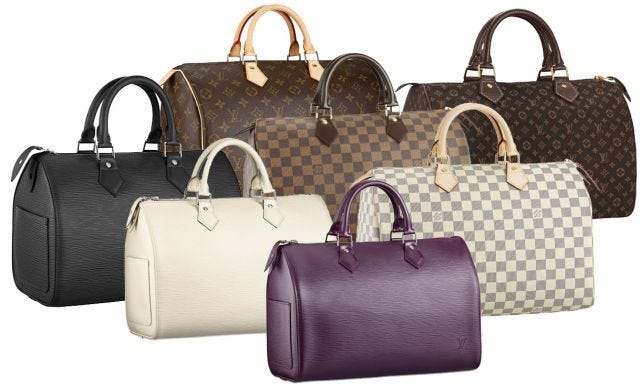So What, Who Cares (vol 1, issue 29) Why the Maker Movement could make the new middle class
You readers! You're the greatest. Let me show you why. One of you wrote in this morning and asked of the vanishing clerical and "unskilled" white-collar jobs: "With the absence of that white-collar entryway, what do you think will come along to replace it?"
And then, immediately after that, another one of you wrote in with this anecdote:
My sister started out as a temp admin assistant at Edelman PR and her main responsibility was booking travel for the Bush's Beans dog. She also had a blog and was a very early Twitter adopter in Chicago and over the last decade+ has worked hard and risen to SVP of social media at Olson PR.
If there's a takeaway here, it is that the one skill every young person will need in the job market is the ability to discern a new job category, define and fill it before someone else begins devising the correct and credentialed path to it.
*
In slightly related "this transitioning economy" news, Marketplace is asking, "Are you a middle-man that's cut out of the new economy? Travel agent, real estate broker, or car salesman? Email us!"

It will be interesting to see whether the story notes the tradeoff between DIY negotiating and the convenience of customer service. The luxury industry is currently grappling with customer service as a differentiating factor to justify their costs. It's not enough to have great in-person, in-store service any more: Consumers now expect 24/7 access to goods via the Internet, and they expect luxury brands to provide luxury customer service online. As of right now, some luxury brands are scrambling to figure out how to convey a luxury experience across multiple platforms.
So what? Customer service is being squeezed out of different consumer sectors in the low- and middle- markets, but there's a lucrative market to be tapped for the people who can figure out how to cater to the affluent in a seamless online/offline sequence of events.
Who cares? All luxury hallmarks trickle down. (For example, Everlane offers web surfers the chance to put on their "waitlist" and thus get early access to new product releases.) By keeping an eye on how luxury retailers attempt to define the premium e-tail experience -- or how they manage to integrate online and offline experiences as part of a new whole -- savvy consumers can see how their own usual retailers will attempt to goose sales, cajole more personal info out of you, or try to push their price points higher a la J. Crew.
*
If you're repelled by the notion of growing your career via capering to shopaholics, why not consider an alternate path? I refer to "the maker economy," which is the "money is exchanged for goods and services" aspect of the "maker movement."
To help cut down on the shameless deployment of quotations marks, a definition: the maker movement is basically the 21st century version of the DIY punk ethos, i.e. the notion that independent tinkerers, craftspeople and inventors can create cool, beautiful and useful things, and not only flip the switch from "consumer" to "creator," they can also take pleasure and pride in mastering the process of production.
The maker economy is the one in which people make money by making cool things, or by making the tools that make cool things (i.e. 3D printers). Etsy is part of the maker economy; it made $1.35 billion in merchandise sales last year.
So What? While the maker economy is not exactly new -- for a decent overview of punk DIY and indie culture, read Kaya Oakes' Slanted and Enchanted: The Evolution of Indie Culture, and you can go back even further to the crunchy 1960s-1970s iteration *-- it is worth noting that this iteration has a lot of fluidity between "big industry" and indy makers (witness the working relationship between West Elm and Etsy's wholesale division), and there's also a decidedly techie bent, between online crowdfunding models, 3D printers, and the rise of a low-end industrial robotics market ($25K for an industrial robot is cheap) for small-scale manufacturing.
* And, if you like, go back even further to the Arts & Crafts movement, which sought to push back against mass-produced goods by emphasizing the process and intent behind hand-made goods.

Who cares? The maker economy could become the new engine for middle-class jobs in America. Once big business markets are challenged by alternate methods of funding, prototyping, manufacturing, retailing and customer service, you'll see two classes of jobs emerging: the first wave, which defines the new types of funding, prototyping, etc. jobs, and then the second wave, which provides services to meet new demands created by the first class of jobs.
This depends, of course, on whether the maker market can break out of hipper-than-thou markets and lifestyle niches. Martha Stewart's betting on it.
*
Are you ready and/or willing to be part of the maker movement? Have any strong opinions on fall TV? (I am loving your feedback on Selfie.) Tell me via email or Twitter. Always let me know what you think about So What, Who Cares? If you really like it, tell a friend to subscribe.

